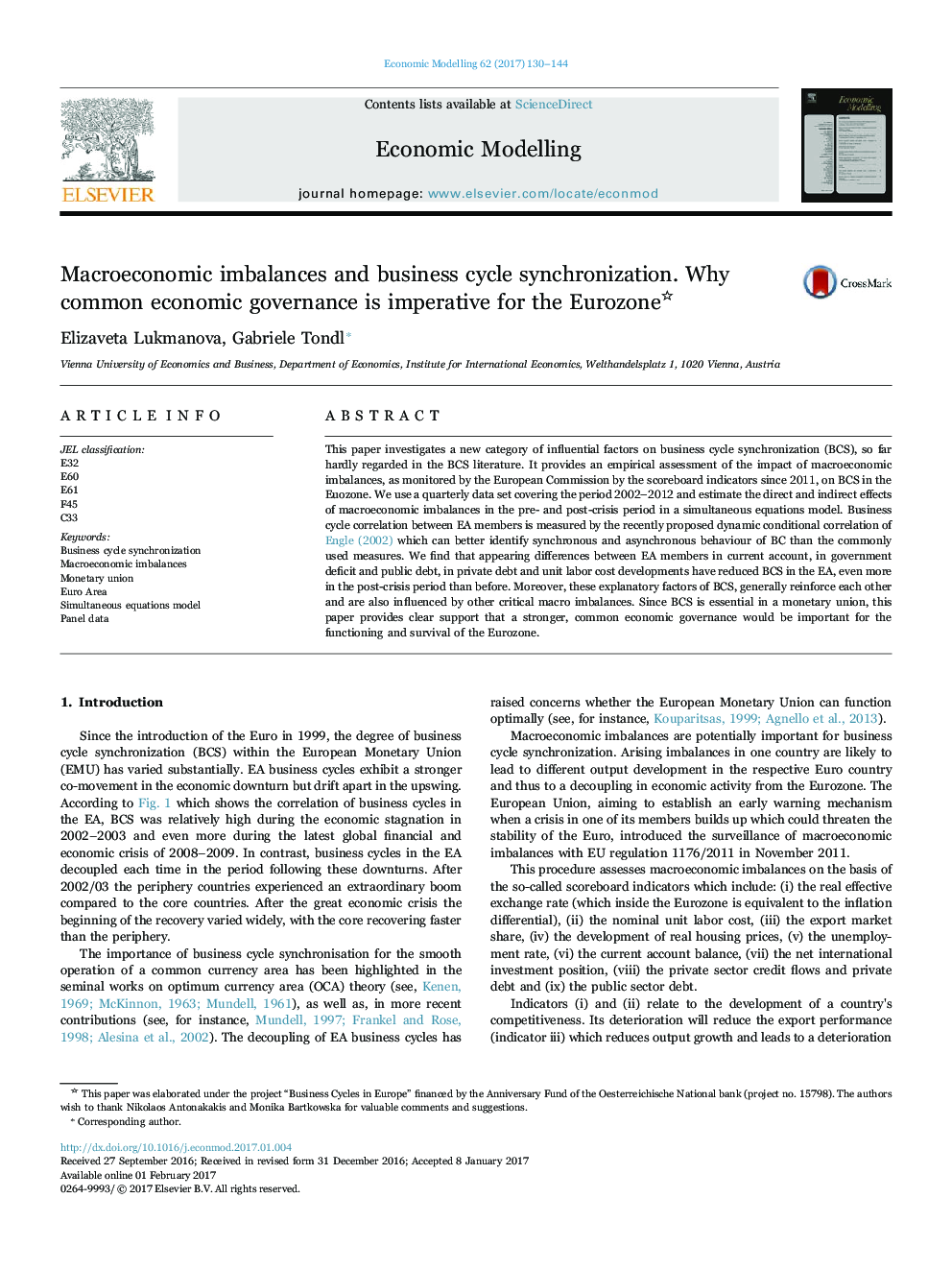| Article ID | Journal | Published Year | Pages | File Type |
|---|---|---|---|---|
| 5053262 | Economic Modelling | 2017 | 15 Pages |
Abstract
This paper investigates a new category of influential factors on business cycle synchronization (BCS), so far hardly regarded in the BCS literature. It provides an empirical assessment of the impact of macroeconomic imbalances, as monitored by the European Commission by the scoreboard indicators since 2011, on BCS in the Euozone. We use a quarterly data set covering the period 2002-2012 and estimate the direct and indirect effects of macroeconomic imbalances in the pre- and post-crisis period in a simultaneous equations model. Business cycle correlation between EA members is measured by the recently proposed dynamic conditional correlation of Engle (2002) which can better identify synchronous and asynchronous behaviour of BC than the commonly used measures. We find that appearing differences between EA members in current account, in government deficit and public debt, in private debt and unit labor cost developments have reduced BCS in the EA, even more in the post-crisis period than before. Moreover, these explanatory factors of BCS, generally reinforce each other and are also influenced by other critical macro imbalances. Since BCS is essential in a monetary union, this paper provides clear support that a stronger, common economic governance would be important for the functioning and survival of the Eurozone.
Keywords
Related Topics
Social Sciences and Humanities
Economics, Econometrics and Finance
Economics and Econometrics
Authors
Elizaveta Lukmanova, Gabriele Tondl,
